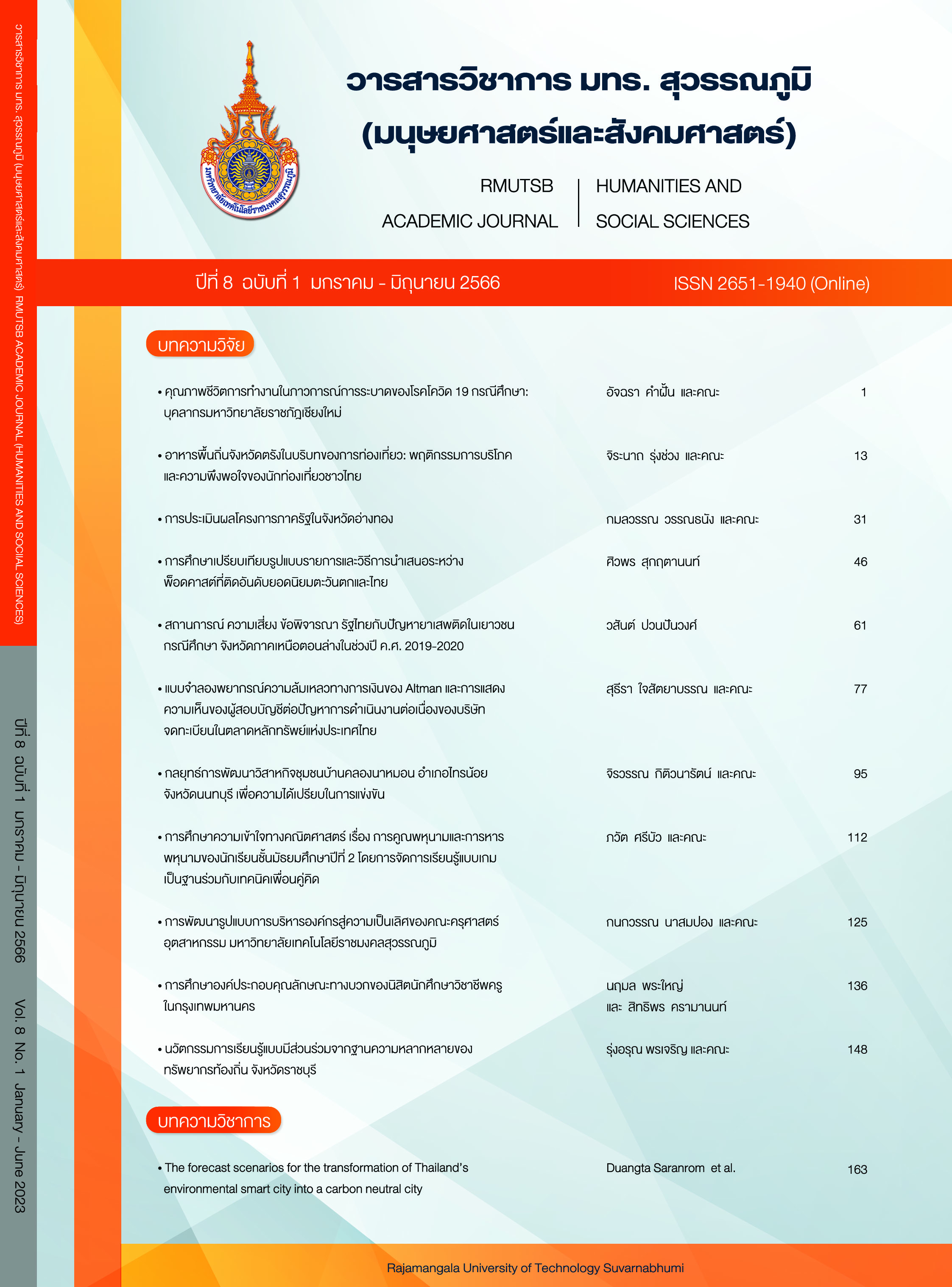A comparative study of program format and presentation methods between top-rated Western and Thai podcasts
Main Article Content
Abstract
This study compares contents and formats between top-rated Western and Thai podcasts and also suggests popular podcasts' qualifications. The content analysis was conducted based on the radio program formats, transmedia storytelling, and PodCred Framework. This research purposively selected sixty top-rated Western and Thai podcast samples in October 2021. The results of this study showed that top-rated podcasts shared the following characteristics; having affiliation with organizations or media networks, featuring evergreen content, introducing programs with jingles, and releasing new episodes once a week. The podcast hosts were well-known and conversed fluently at an easy-to-understand speed. Podcasts were delivered in the form of co-hosted talks, interviews, and narrative style. Top-rated podcasts displayed information about the shows' names, creators, program descriptions, and logos, while episode-level details were less likely to be fully displayed. On average, top-rated Western podcasts lasted longer in business. Popular content genres were different. While news, comedy, and true crimes were popular content in Western, business and education were popular in Thailand. Top-rated podcasts used cross-media storytelling, which involved distributing the same content across various channels. However, Western podcasts also used transmedia storytelling to tell stories and supplement their podcast content with different storylines on websites, Facebook pages,
and YouTube.
Article Details

This work is licensed under a Creative Commons Attribution-NonCommercial-NoDerivatives 4.0 International License.
References
Achariyakul, N., & Pothisuwan, T. (2004). Radio script writing (teaching material). Nonthaburi: Sukhothai Thammathirat Open University press. (in Thai)
Berry, R. (2016). Part of the establishment: Reflecting on 10 years of podcasting as an audio medium.
Convergence:The International Journal of Research into New Media Technologies, 22, 661-671.
Boon, W. (2022). Podcast a new seeming to be popular media but Thai producers can not monetize. Retrieved 19 October 2022, https://plus.thairath.co.th/topic/spark/101541. (in Thai)
Hammersley, B. (2004). Audible revolution. Retrieved 10 October 2022, from https://www.theguardian.com/media/2004/feb/12/broadcasting.
Hancock, D., & McMurtry, L. (2018). I know what a podcast is: Post-serial fiction and podcast media identity. Podcasting: New Aural Cultures and Digital Media, 1, 81-105.
McHugh, S. (2016). How podcasting is changing the audio storytelling genre. Journal International Studies in Broadcast & Audio Media, 14(1), 65-82.
Prapayont, D., & Satawedin, P. (2021). Customer insights and media exposure of podcast listeners to present and promote podcast channels effectively on Facebook in Thailand. Dusit Thani College Journal, 15(2), 251-265. (in Thai)
Prasertkul, T. (2016). Using podcast and the show witcast to disseminate and promote the public understanding of reserches done by TRF (Thailand Reserarch Fund). Bangkok: The Thailand Research Fund.
Priyakorn, A., & Satararuji, K. (2018). The creation process study of the broadcast programming via Podcast Channel in Thailand. Journal of Communication Arts, 36(3), 47-58. (in Thai)
Puimom, S. (2015). A use of podcast for enhancing Thai college student’s skills (research report). Suphanburi: University of Technology Suvarnabhumi Suphanburi Center. (in Thai)
Raweng, P., & Kleechaya, P. (2018). Digital literacy of podcast audience. Journal of Communication Arts, 36(3), 59-76. (in Thai)
Raweng, P. (2020). Content analysis of podcast via OTT radio service in Thailand. NBTC Journal, 4(4), 213-250. (in Thai)
Rodkhumdee, J. (1982). Radio program production handbook. Bangkok: Department of Mass Communication, Faculty of Communication Arts, Chulalongkorn University. (in Thai)
Sinraksa, D., Soreb, S., & Sukpan, P. (2022). The development of English listening comprehension supplementary material using podcast for the first year English major students at Songkhla Rajabhat University. Journal of Education and Innovative Learning, 2(2), 97-108. (in Thai)
Statista. (2022). Number of podcase listeners worldwide 20192024. Retrieved 19 October 2022, from https://www.statista.com/statistics/1291360/podcast-listeners-worldwide/
Sukhothai Thammathirat Open University. (2006). Teaching material for an introduction of radio production. Nonthaburi: Sukhothai Thammathirat Open University press. (in Thai)
Supsinwiwat, R. (2022). The communication process and qualifications of podcast hosts. Institute of Culture and Arts Journal, 23(2), 55-70. (in Thai)
Suvarnaphaet, K. M., & Suvarnaphaet, P. (2021). Podcast in Thailand. Interdisciplinary Academic and Research Journal,1(3), 39-46. (in Thai)
Tsagkias, M., Larson, M., & Rijke, M. (2010). Predicting podcast preference: An analysis framework and its application. Journal of the Association for Information Science and Technology, 61(2), 374-391.
Vinijsorn, S. (2002). Horror story in radio, television and telephone programs (Master’s thesis). Chulalongkorn University, Bangkok. (in Thai)


